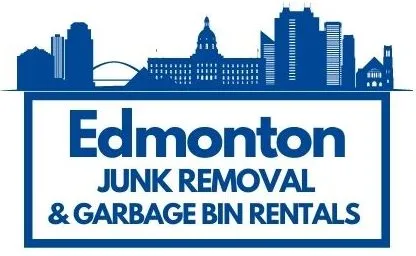Proper waste management is a crucial aspect of maintaining cleanliness, hygiene, and environmental sustainability in both residential and commercial settings. Selecting the right garbage bin size is fundamental to effectively managing waste disposal while ensuring convenience and compliance with local regulations.
In this comprehensive guide, we’ll delve into the essential considerations and steps necessary to choose the optimal garbage bin size tailored to your specific requirements. Whether it’s for a household, business, or community setting, Edmonton Junk Removal & Garbage Bin Rentals will help you understand your waste generation patterns. Also, the available options will help you make an informed decision in aligning bin sizes with your needs.
Comprehending Your Trash Disposal Needs
Choosing the right size garbage can is essential to efficient waste management. Through a thorough evaluation of your unique requirements and comprehension of the variables affecting bin size choice, you can guarantee effective waste management while reducing avoidable expenses or overflow problems.
Evaluating Your Volume of Waste
Evaluating the volume of waste you generate is an important step in understanding your environmental impact and identifying opportunities for waste reduction. Here are steps and considerations to help you assess your waste generation:
Weighting Your Waste Production
Start by calculating the typical daily or weekly trash production of your household or place of business. Think about the different kinds of waste generated, including regular home garbage, recyclables, green waste, or specific waste from companies.
Seasonal Differences and Variations
Take into account any seasonal changes or oscillations in the amount of garbage produced, such as an increase in waste around certain occasions or holidays. This will assist you in choosing a bin size that can handle times of high garbage production.
Identifying the Available Bin Sizes
Identifying the appropriate bin sizes for waste disposal is essential to efficiently manage waste and recycling in different settings, such as households, businesses, or public spaces. Here are steps to help identify the suitable bin sizes:
Comprehending Standard Bin Sizes
Learn the usual sizes of bins that trash management firms and municipalities offer. Sizes typically range from 20 to 30 gallons for small bins to 64 to 96 gallons for larger alternatives or industrial-sized bins for commercial use.
Choices Regarding Organic Waste and Recycling
To enhance sustainability efforts and decrease the amount of garbage generated overall, think about allocating distinct containers for recyclables and organic waste.
Bin Sizes That Comply with Your Needs
Selecting bin sizes that comply with your needs involves a careful consideration of factors such as waste volume, type of waste, space constraints, and local regulations. Here are general guidelines to help you choose bin sizes that align with your specific requirements:
Little Household or Minimal Production of Waste
Smaller bin sizes (20–30 gallons) may be sufficient for smaller homes or those with less garbage production, particularly if the majority of the waste is recyclable or compostable.
Large to Medium-Sized Families or Moderate Waste Generation
For medium-sized to large homes or those with modest trash output, medium-sized bins (e.g., 35–64 gallons) are appropriate. If necessary, think about setting aside distinct bins for green garbage and recyclables.
Needs for Commercial or Large-Scale Waste
Larger industrial-sized bins (64–96 gallons or more) may be necessary for businesses or facilities producing a lot of waste in order to manage it efficiently.
Beyond Size Considerations
Beyond size considerations, there are several additional factors to keep in mind when managing waste bins effectively. These considerations are essential for creating an efficient and sustainable waste management system:
Space Restrictions and Bin Accessibility
Make sure the bin size you select will fit in your available space and be convenient for disposing of waste.
Local Laws and Available Services
Examine the waste management service options and local regulations in your area. Certain regions may have particular regulations or limitations concerning the size of bins, requirements for recycling, or dates for collections.
Conclusion
In conclusion, selecting the appropriate size garbage bin requires estimating the amount of waste you produce, being aware of your options, and taking into account variables like the size of your home or place of business, the types of waste you produce, and local laws. You can minimize expenses and the impact on the environment while optimizing waste management efficiency by making an informed decision.

